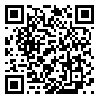BibTeX | RIS | EndNote | Medlars | ProCite | Reference Manager | RefWorks
Send citation to:
URL: http://rehabilitationj.uswr.ac.ir/article-1-1790-en.html

 , Seyed Mohammad Marandi2
, Seyed Mohammad Marandi2 
 , Fahimeh Esfarjany3
, Fahimeh Esfarjany3 
 , Alireza Ghardashi Afousi4
, Alireza Ghardashi Afousi4 
 , Ahmadreza Movahedi5
, Ahmadreza Movahedi5 

2- Department of Sport Physiology, Faculty of Physical Education and Sport Sciences, University of Tehran, Tehran, Iran., ESFAHAN university
3- Department of Sport Physiology, Faculty of Physical Education, University of Isfahan, Isfahan, Iran., ESFAHAN university
4- Department of Sport Physiology, Faculty of Physical Education, University of Isfahan, Isfahan, Iran., tehran university
5- Department of Motor Behavior and Sport Management, Faculty of Physical Education, University of Isfahan, Isfahan, Iran., ESFAHAN university
Objective Non-progressive cerebral palsy (CP) is due to abnormal development of brain and or brain damages before, during, or after birth. The reason of cerebral palsy is brain damage or its abnormal development. Most of these problems happen when the child is in mother’s womb, but the chance is high that it happens in the first 2 years of life, when the brain develops. One of the commonest and most important debilitating signs of cerebral palsy is damage to higher functions, in such a way that the control of moves in grasping and leaving get damaged and in the end, the strength of hand for planning of movement decreases. Several studies have examined the effect of resistance training on muscle strength of patients with CP, while none of them has examined the effect of progressive resistance and balance training in children with CP. This study aimed to investigate the effects of progressive resistance and balance training on upper trunk muscle strength of children with CP.
Materials & Methods Three boys with cerebral palsy (two patients who were 7 years old and one who was 6) participated in this research. In this study, single subject research method with A-B-A plan was used. Progressive resistance and balance training were administered for 3 days per week for 8 weeks. Wrist and elbow flexor muscles strength was measured by PowerTrack Õ dynamometer (manufactured by JTECK with 4.4 N threshold).
Results According to visual analysis of data diagrams and based on descriptive statistical indexes and visual analyses, the results showed that resistance and balance training in intervention situation compared to baseline increased the strength of elbow flexor (percentages of non-overlapping data for the first and second participants were 75% and for the third participant, 100%). The strength of upper trunk muscles after intervention hve improved compared to baseline; however, one month after intervention, the trend was pretty stabilized.
Conclusion The results of this study showed that 8 weeks of progressive resistance and balance training (in combination) has increased muscle strength in children with cerebral palsy. The present research showed that resistance and balanced trainings have significant effects on muscle strength of children with CP. It seems that these practices have been effective, especially for the wrist flexor and elbow flexor muscles. It can be said that the increase in the muscles of children with CP was due to practice principle along with increase in neuronal compatibility. One of the important points in the effectiveness of resistance training is the intensity of training. The results showed that resistance and balanced trainings increase the muscle strength of children with CP. This power could be partly due to increase in muscle volume and partly due to anabolic hormones.
Received: 11/06/2015 | Accepted: 21/10/2015 | Published: 1/04/2016
| Rights and permissions | |
 |
This work is licensed under a Creative Commons Attribution-NonCommercial 4.0 International License. |




